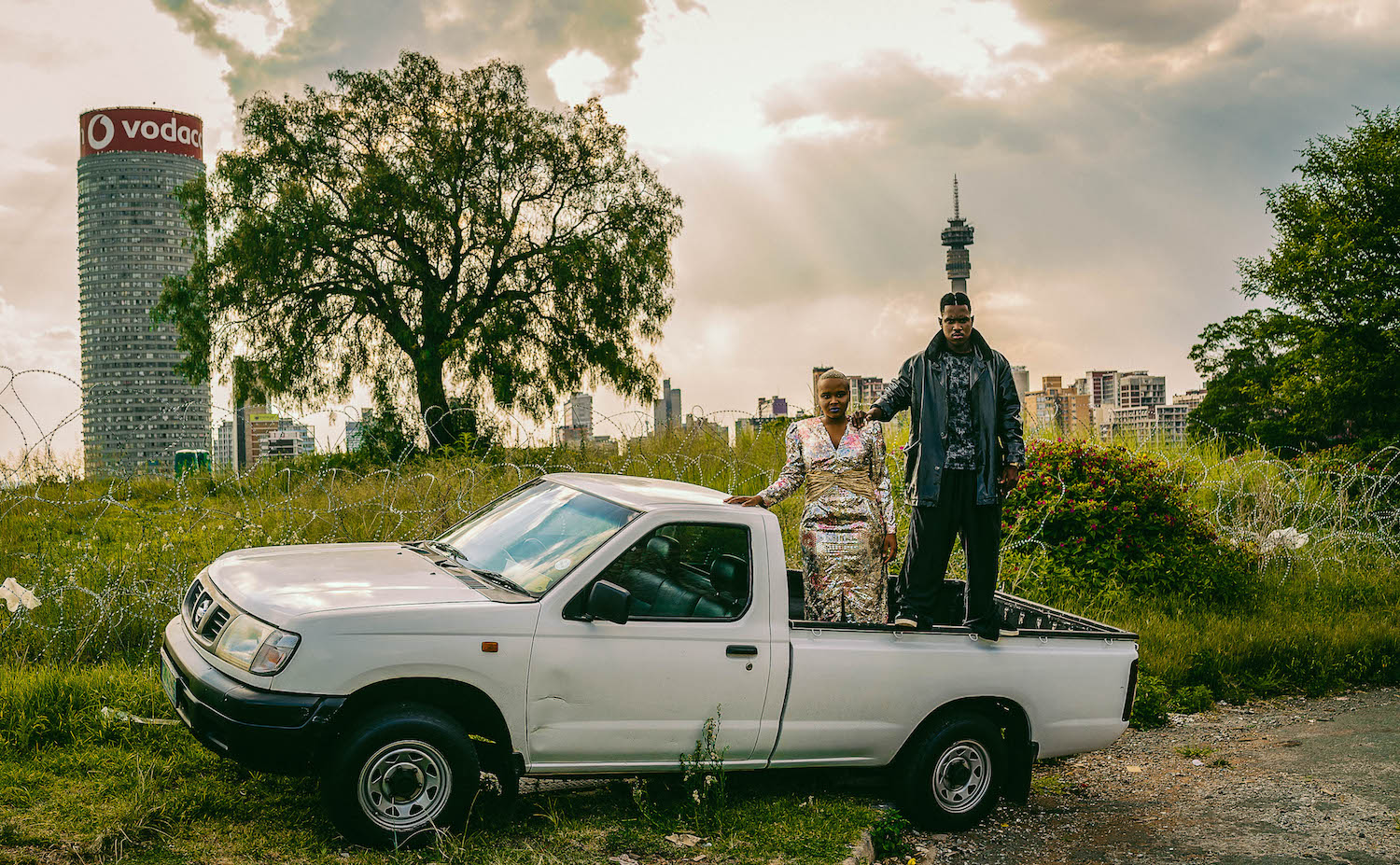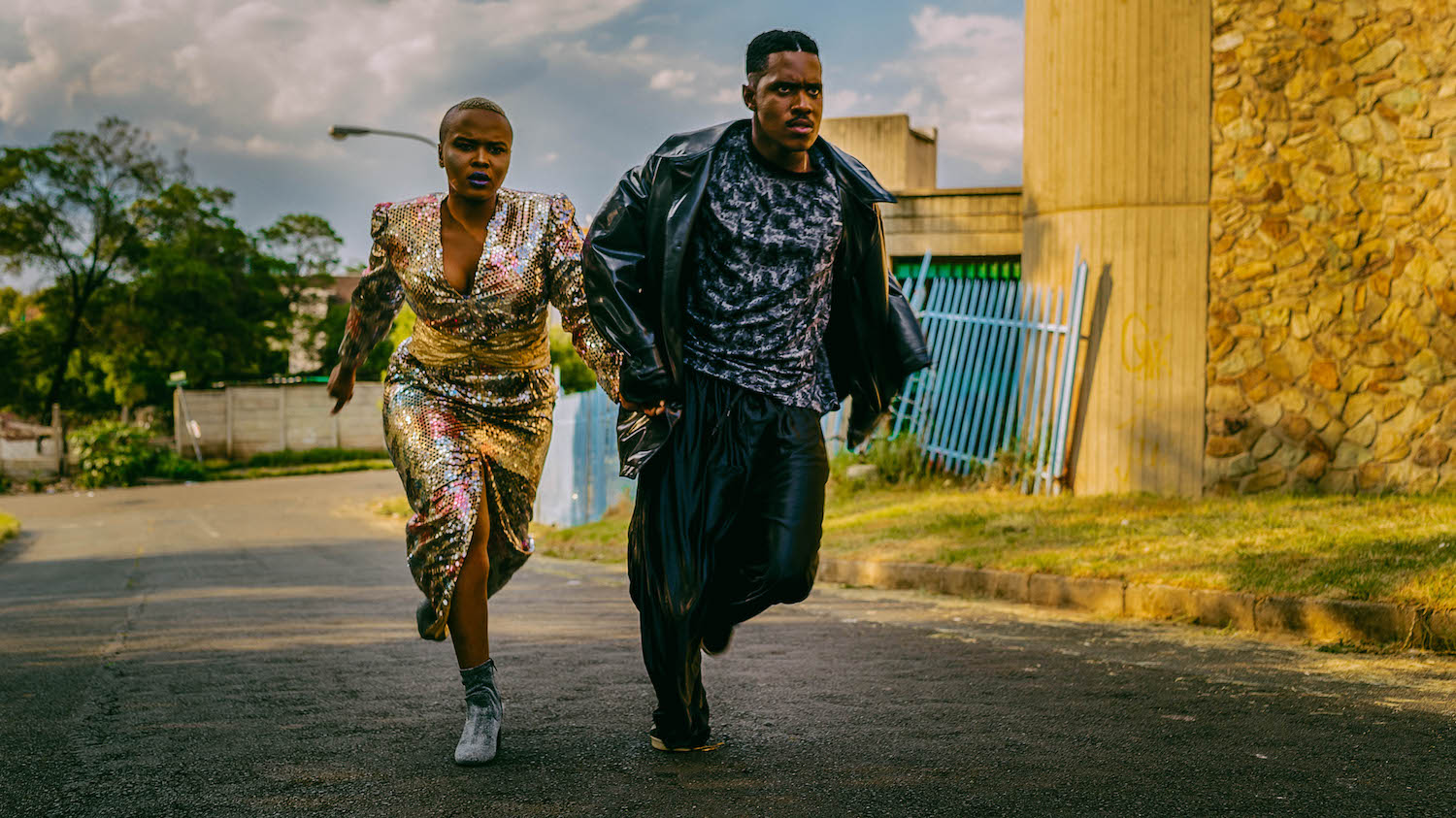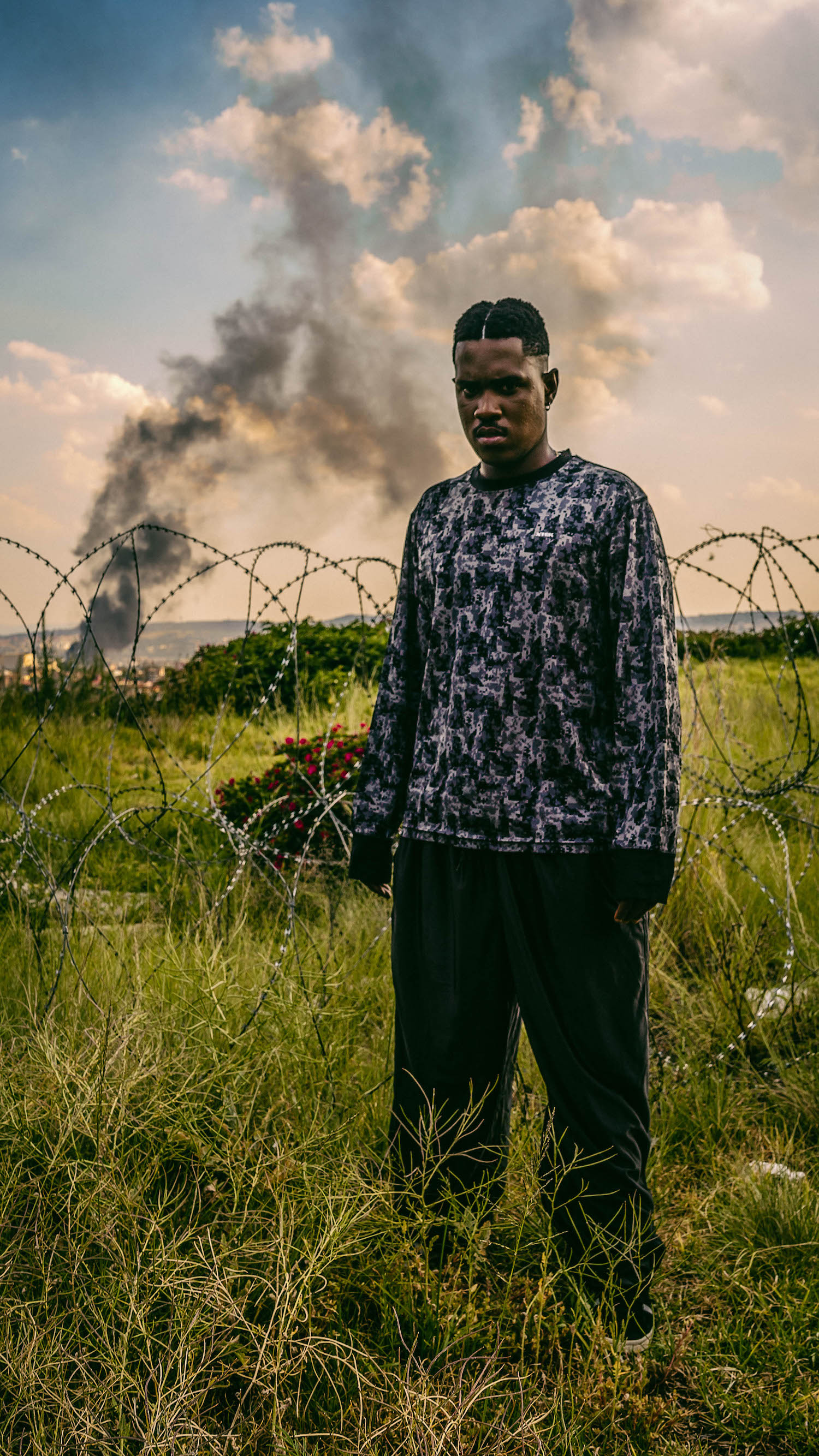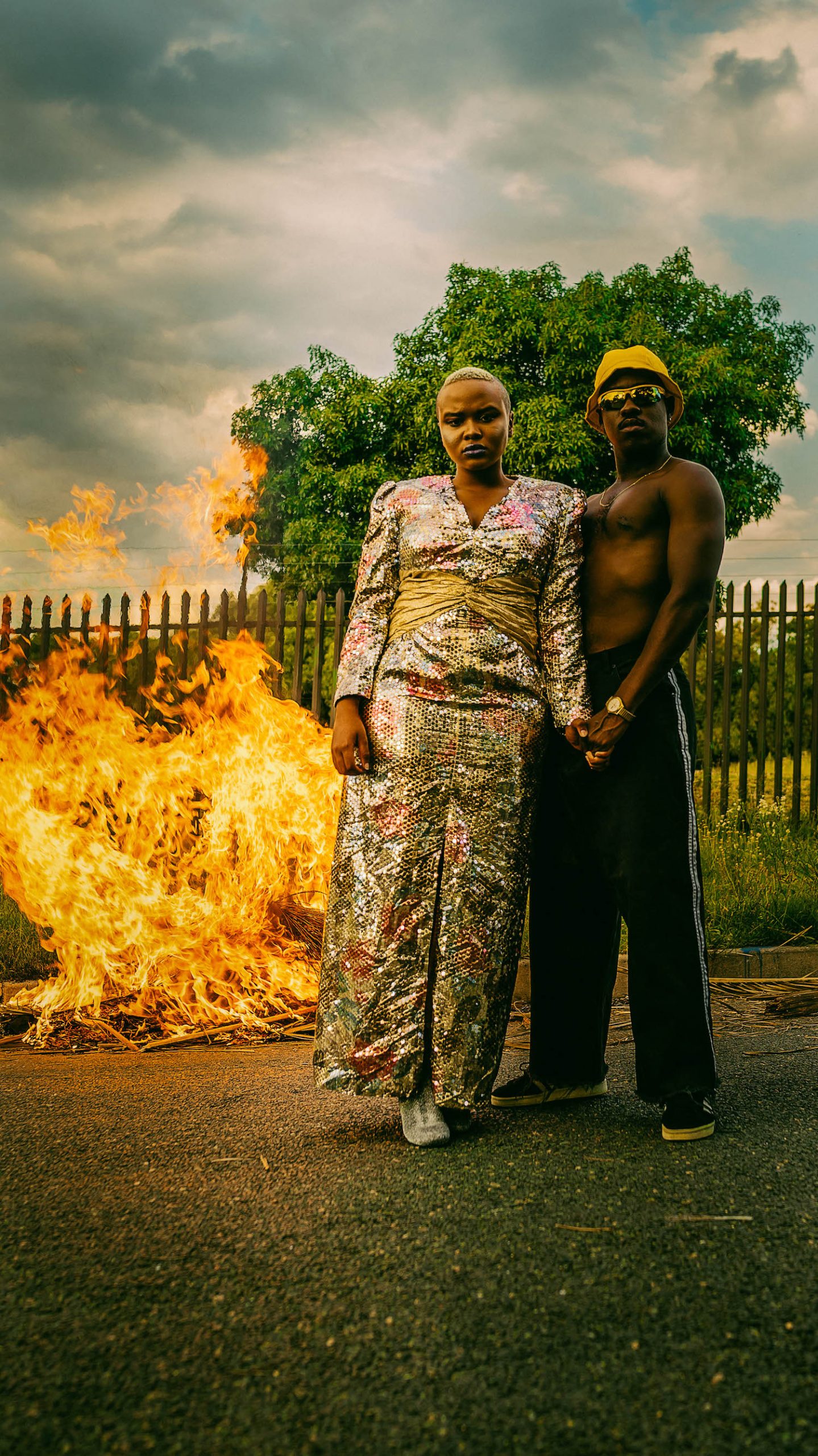It’s been almost a year since the duo Darkie Fiction burst onto the scene with their nostalgic, feel good single ‘Selula’. Produced by Stiff Pap’s Jakinda, Darkie Fiction’s Katt Daddy and Yoza Mnyanda didn’t expect the track to have such an impact. “It was honestly just experimenting, trying, seeing what we could be if we came together.” recalls Yoza.
The past year has seen the duo work hard in studio with like-minded producers to create their debut EP ‘Sobabini: A Mzantsi Evolution’. Meaning the two of us, the title is a reference to joining forces between rapper Katt Daddy and singer Yoza Mnyanda. Born out of frustration from hearing local music on commercial platforms that didn’t sound South African, the EP references a time when local sounds were dominating the airwaves. “We missed hearing Boom Shaka vibes and TKZee vibes. So we wanted to carry the baton from those kinds of people”. Yoza explains.
Featuring productions by Fosta, Original Swimming Party, DJ Mdubulo, Thor Rixon, Albany Lore, as well as Maloon the Boom, the duo were looking for producers eager to experiment with them, but who also had their own style. “We want to take these producers out of the alternative/leftfield boxes and bring them into mainstream along with us. To change the perception of how people consume music and what people perceive as South African music.” says Katt Daddy of the duo’s decision in choosing the right producers for the EP.

Stylistically the duo is similarly rooted in South African culture, with their photoshoots and videos referencing local culture heavily. The cover art for ‘Selula’ for example aims to portray the lives of Black South Africans during the 1970s & 80s that wasn’t documented or as Katt Daddy put it, “Black people were not seen in fancy houses with dinner tables and paintings on the wall.” Adds Yoza, “we wanted to say ‘hey, we grew up very nicely, [our parents] did their absolute best’”.
Aiming for a shift in the local music industry, the duo believe that there is an appetite for local sounding music, but a lack of commercial support for it. “You play TKZee in the club now and people go crazy. But it’s access, it’s not circulating on radio, it’s not played on television. That’s what drives us to get back to be circulated again because we hope that our names are the names they speak of when the wave of the South African music industry shifted one day.” Yoza explains.
Noting America’s dominance of media and culture, Katt Daddy also believes a major factor in the success of American sounding local music is due to an inferiority complex amongst black people thanks to apartheid’s legacy along with black South Africans admiration of black Americans who went through similar struggles during the Civil Rights Era. It is for this reason that Darkie Fiction is focusing on South African music for South Africans. “We’re not making music to be noticed in America and go to America, of course I’d like to be exposed to countries overseas, but it’s very important that we make music for South Africans as South Africans.” explains Katt Daddy.

With the EP still fresh, the duo is currently working hard on promoting it and will be releasing a video for ‘My Ntliziyo’ next. “It’s focusing on the title of the EP, because we are also in a romantic relationship and lots of people ask if we are in one or not, so this video is going to say yes we are.” shares Yoza of the treatment for the video. They do have new songs in the pipeline, but are giving their EP some time to breathe first.
Having played the likes of Design Indaba and Oppikoppi, the duo are no strangers to large stages and feel more comfortable in that environment. “It’s actually the smaller stages we find more challenging. We performed at Kitcheners and that was the smallest stage we’ve ever performed on. It’s challenging, intimate, very different vibe, not to say that we don’t enjoy it but we conceptualise our performances on big spaces.” explains Katt Daddy. “We watch a lot of how Boom Shaka used to perform. We have a lot of grievances with the music industry at the moment. Sometimes we go to shows just to see how people perform and it’s so boring. So we decided to actually put on a show. We sweat! The visuals, the music, the performances it all has to tie in together and when you see Darkie Fiction on stage you say yes that makes sense. Quality is very important for us.” continues Yoza.
Although Yoza and Katt Daddy aim to make music for South Africans they are acutely aware that in the current industry it is not sustainable as yet, still they believe artists shouldn’t be making music to be booked in certain places. “The ones that are making American sounding music are making the most money in South Africa and the ones that make South African music are the ones that get invited to Sweden or Switzerland to perform. It’s very funny. I think it’s possible and we as Darkie Fiction are advocating for that, that South Africans can be called to play overseas but you must not focus on making music so that you can perform overseas.” says Katt Daddy.

Yoza continues, “…if you’re not being appreciated at home you should go where you’re appreciated. But I don’t think people deliberately don’t want to make it at home, it’s just the way it is. Hopefully it changes tho!”
In the end Katt Daddy and Yoza want their listeners to take positivity from their music. “Be South African. Remember where you come from. Always stay positive in any situation. Just know that things will work out.” exclaims Katt Daddy. “Feel good. Katt & I both struggle from mental illness, so our music comes from there. It comes from when we’re feeling shit, we make music because it makes us feel better. And in turn when people listen to it they say they feel good. I think it’s not necessarily an intention that we’re going to make feel good music, but because of the place that it comes from for us then it ends up translating that way. Which is awesome.” adds Yoza.














